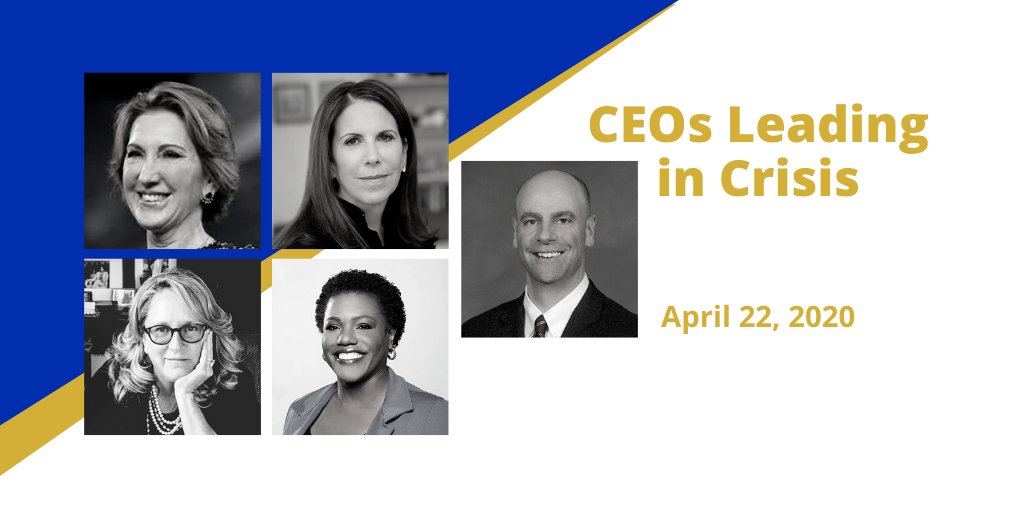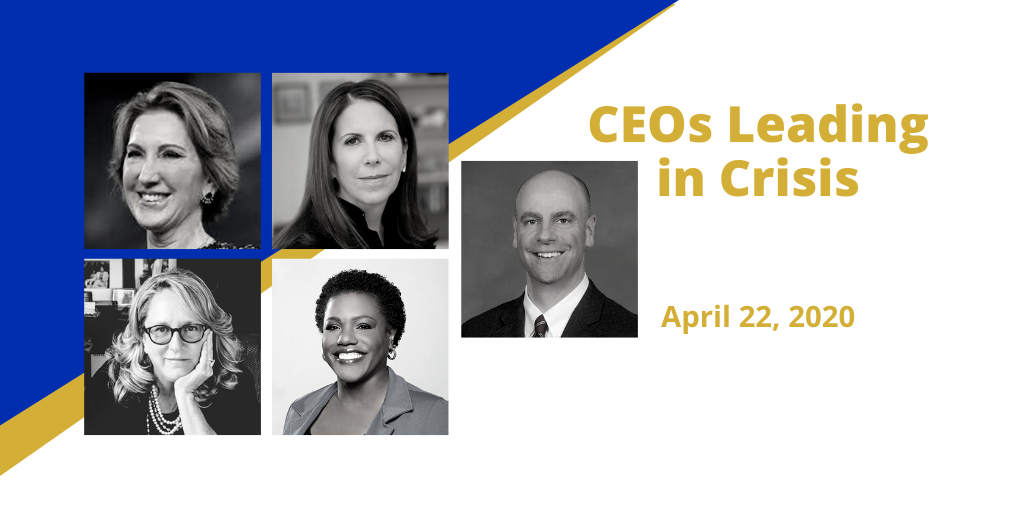While there is less available data on female executives in the tech industry specifically, a 2020 study found nearly half of tech startups in the United States have at least one woman in an executive position.
That’s a little more promising; but it doesn’t change the fact that the tech industry presents women with persistent institutional barriers making it harder to rise through the ranks. Analyzing the industry as a whole, only 38% of women who majored in computer science are working in the field—compared to 53% of men—according to data from the Pew Research Center. (Also read: 5 Key Things Holding Women in Tech Back – and What Can Be Done.)
In other words, women holding CEO positions in tech have defied the odds. And, while it’s critical to work systemically to rectify the industry’s gender gap, learning from women who’ve established C-suite cachet can be a welcome respite for those looking to break into the field.
In honor of Women’s History Month, Techopedia sat down with Susan Stone, CEO of Ubiquitous Energy, Ashley Rose, CEO and founder of Living Security, Kathy Hannun, co-founder and president of Dandelion Energy, and Agnieszka Wilk, CEO of Decorilla, to learn more about their roles and how they got there.
Here’s what we learned:
What does your day-to-day work look like?
Susan Stone
“My work entails a little bit of everything!
As CEO, I need to be a true generalist and understand all of the key components of the business and how they interact—this drives strategy and resource allocation.” (Also read: Business Intelligence: How BI Can Improve Your Company’s Processes.)
Ashley Rose
“I am responsible for leading the business and ensuring what we do every day as a company moves us forward to achieving our mission: to transform human risk into an enterprise’s greatest asset for cyber defense.”
Kathy Hannun
“I focus on managing our engineering and product teams and serving as a spokesperson for our work.”
Agnieszka Wilk
“I wear many hats. I feel lucky enough to have worked in virtually every department of Decorilla from the ground up—and it really helps me understand all aspects of the operations today.
I also work on our business development with partners and vendors. I help to prioritize important initiatives such as sales, search engine optimization (SEO), tech, and even company retreats—all essential parts of being a leader, I believe.”
 Agnieszka Wilk
Agnieszka Wilk
How did your background lead to where you are now?
Susan Stone
“I have a bachelor’s degree in economics and an master’s degree (MBA) in finance. During my MBA, I was able to add skills and education that are more directly applicable to my career path: finance, marketing, strategy and human systems. After my MBA, I worked as an investment banker and as a venture capital investor before finally taking on my operating role at the Silicon Valley-based technology company Ubiquitous Energy. (Also read: The Best Places in the World to Work in Tech.)
While my experience ranged from finance and marketing to strategy, operations and investing, all of those areas now complement my role. There’s no direct path to becoming CEO in technology or other fields, but I believe the key is in having a beginner’s mind and being open and curious. There is something to learn in every role—especially in technology.”
Ashley Rose
“I majored in business administration and always had an interest in entrepreneurship, which is what eventually led me to founding and growing a tech startup.
I was starting my career in the tech industry as a product leader on a software team at a public company. Over the next several years, I honed my skills in product development and marketing and gained a strong intuition for delivering solutions that meet customer needs. Meanwhile, my husband Drew was building and running cybersecurity programs for the U.S. government; we both had a front-row seat to the problems organizations are facing to prevent breaches. (Also read: Data Breach Notification: The Legal and Regulatory Environment.)
That’s when we decided to combine our strengths to launch Living Security. With my background in entrepreneurship and Drew’s 13-plus years of cybersecurity experience, I was able to bring my business, marketing and product experience to the table and apply it to starting and growing our company.
It’s this combination of our talents and experiences that allowed us to take an age-old problem and look at it differently—ultimately leading to Living Security’s success.”
Kathy Hannun
“I majored in civil engineering and did my masters degree in computer science. Today I lead a hardware engineering team and a software team. (Also read: Job Role: Hardware Engineer.)
While I am not doing civil engineering and coding work myself at this point, I draw on so many of the things I learned in school in my work. One of the skills I learned as a civil engineering student that I’ve drawn upon a lot in my career is how to create models with clearly articulated assumptions and logic. There are so many occasions when you’re trying to build something that doesn’t have exact comparables or a roadmap—but being able to identify your assumptions and clearly define your logic makes it easy to test and ultimately refine those assumptions and collaborate with others in doing so.”
 Kathy Hannun.
Kathy Hannun.
Agnieszka Wilk
“My background is in finance and economics, where I learned a large variety of skills I still use today—from accounting to understanding supply and demand. In my early 20s, this background in finance also encouraged me to develop a “work hard to play hard” mindset: I worked 18 hours a day as a waitress to buy my first house and get on the property ladder when I was 23. And it wasn’t in vain; I learned many transferable skills.
However, currently, I am more concentrated on the business and strategy side at Decorilla—and I enjoy that because I can be more creative and I’m always learning something new.”
Initially, what worried you about going into tech? How did you get past those doubts?
Susan Stone
“My main reservations when approaching the technology field, as someone who did not major in technology in college, was how I would develop a mastery of technical topics in order to connect effectively with my peers.
I overcame that by learning to think like a “technology person” in how I approach problem-solving and communicate. For example, by gaining deep technical knowledge on our own solutions, I develop the in-depth expertise needed to then effectively explain what the technology does to important audiences like investors, the energy community, partners, consumers and more.
Being open to learning is really at the core of it.” (Also read: Top 5 Highest Paying IT Certifications and How to Get Them.)
Ashley Rose
“It’s no secret that a gender bias does exist in the tech and cybersecurity industries.
When I started out, I intentionally sought out people who would encourage me to grow—both professionally and personally. I also made it a mission to stay intently focused on the ‘why’, which is something that still serves me today as we drive our mission forward at Living Security.
Block out any negative thoughts and remember your end goal: to keep driving yourself forward.”
Kathy Hannun
“I didn’t have reservations about entering. I was excited to join!”
Agnieszka Wilk
“My biggest reservation about entering the tech world was self-inflicted: I had self-doubt about my ability and intelligence.
Tech is broad and such a big field that it can seem very complex and overwhelming from afar. However, if you break it down and take a closer look, everything is solvable.
As long as we take small steps every day, we can achieve anything we set our minds to. New inventions and innovations always appear in the tech industry, so you have to be prepared to learn, research, and read a lot to stay ahead of the game.” (Also read: Top Artificial Intelligence Trends to Look Forward To in 2022.)
How can non-women working in tech better support the women they work with?
Susan Stone
“I think it’s important to be available if people have questions about entering a new field like technology; and supporting women—and all team members—with work that is both flexible and meaningful to an individual’s mission for their own career are incredibly important in today’s industry.”
Ashley Rose
“Set an example by building pathways for women.
I’m working really hard to create a gender-balanced team at Living Security. We’re committed to maintaining a team that is at least 50% female; and our current executive team reflects this with women representing half of company leadership.
Also, mentor others when you can and be that encouragement for others who are behind you.”
 Ashley Rose.
Ashley Rose.
Kathy Hannun
“Understand that women are just as talented and capable as men, in whatever field we are in, and treat us in a way that reflects this understanding. Supporting women in tech looks the same as supporting any colleague: Be respectful, give us opportunities, give us credit.”
Agnieszka Wilk
“This seems simple to me. Whatever gender you identify with, for the women in your team, you could offer one-on-one work or mentoring sessions for problem-solving, pay for training, offer flexible hours and support intersectionality across the team.” (Also read: 5 Ways to Support Women in Your Tech Company.)
What advice do you have for women who want to become tech executives?
Susan Stone
“Nurture your strengths instead of apologizing for your weaknesses.”
 Susan Stone.
Susan Stone.
Ashley Rose
“Don’t let ‘imposter syndrome’ stop you.
I am a confident and capable person; but starting my own business, in a brand-new industry, and being in the minority as a woman meant diving into a lot of new situations head-first. I had to remind myself that the experience and skillset that I brought to this company is what got us where we are.” (Also read: The Women of ENIAC: Programming Pioneers.)
Kathy Hannun
“Don’t be shy. Get to know your boss’s boss.
Understand what the top strategic objectives of the organization you’re working in are; and figure out how your work fits in. If this isn’t clear, it’s a great conversation topic for getting to know your boss’ boss!”
Agnieszka Wilk
“Sometimes opportunities come knocking out of nowhere; and it’s good to embrace them—don’t be scared because of social norms.
But the best piece of advice I have received is: ‘People break down into two groups: motors and anchors. You always want to surround yourself with people who push you forward—not hold you down.'” (Also read: The Women Who Shaped the Tech World.)
Conclusion
Two things can be true at once:
- Rectifying the gender gap will take more than simply having women in executive positions in tech.
- We can—and should—learn from the women who’ve made it to executive positions in tech.
And Susan Stone, Ashley Rose, Kathy Hannun and Agnieszka Wilk are prime role models for anyone who wants to succeed.
*These interviews have been edited for length and clarity.*


















